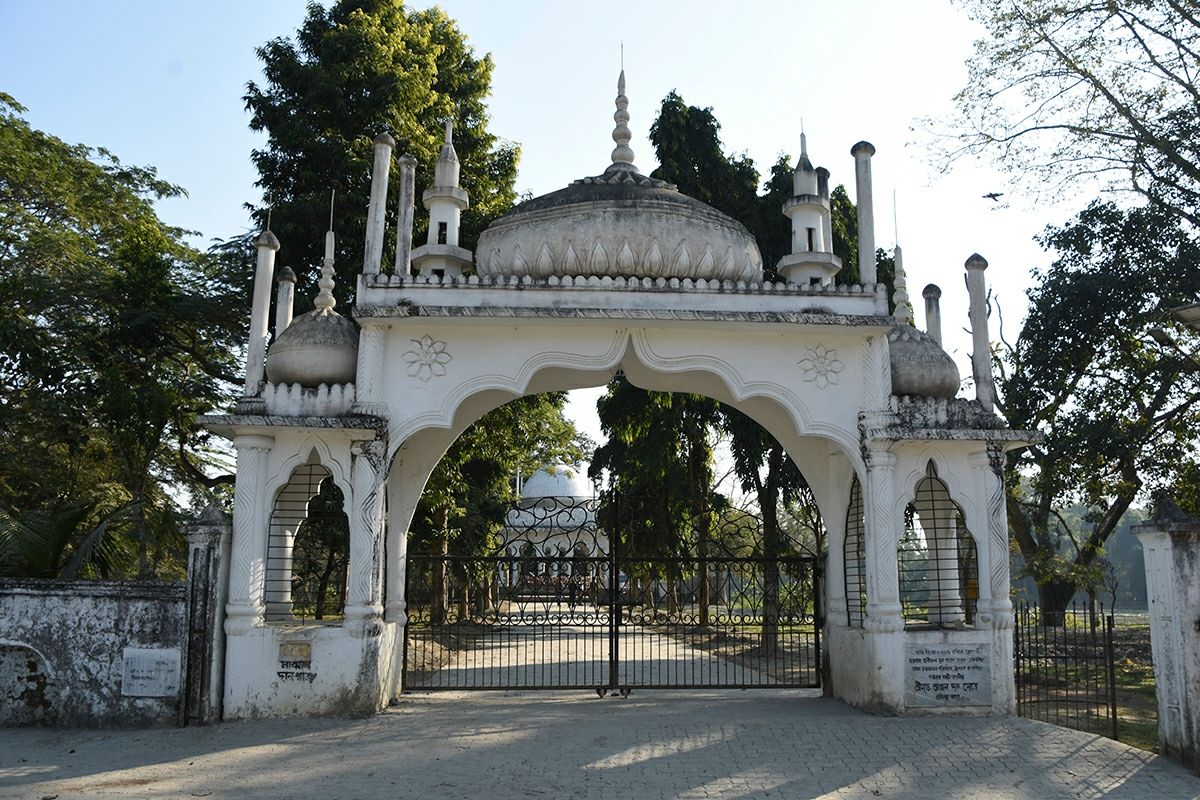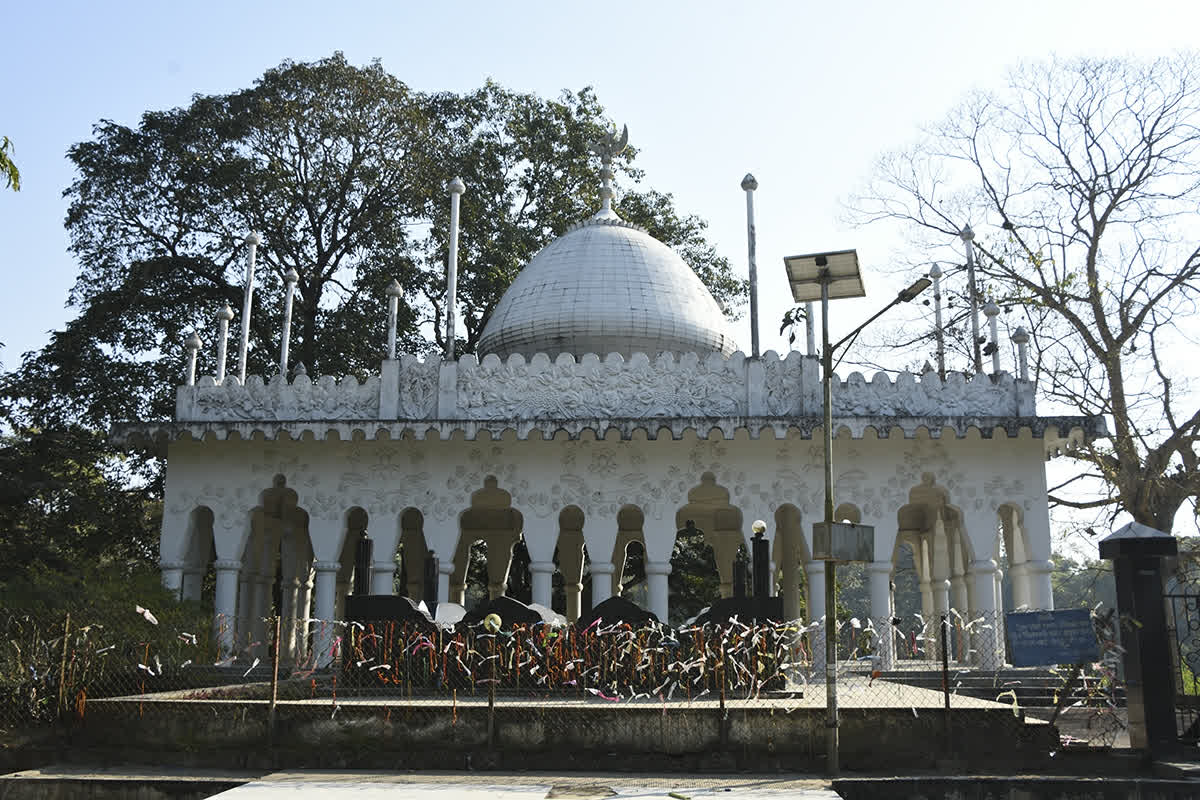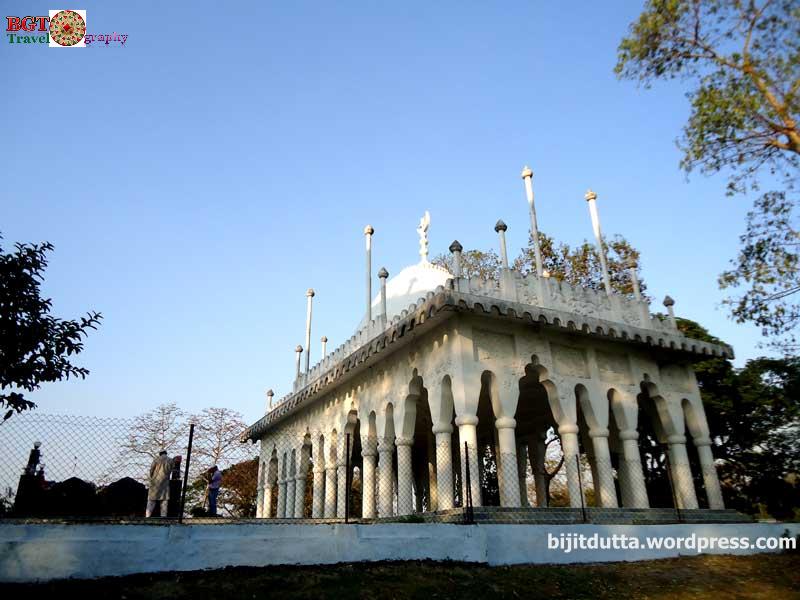


Azan Fakir's Madrasa, located in Sivasagar, Assam, is a historical institution that holds immense significance in the Islamic and cultural history of Northeast India. Founded by the renowned Sufi saint Azan Fakir in the 17th century, this madrasa has played a crucial role in shaping Assam's religious and educational landscape. Azan Fakir, also known as Azan Pir, was a Sufi saint who arrived in Assam during the reign of the Ahom king Jayadhwaj Singha. He is credited with introducing a unique form of Zikr (Islamic devotional practice) that incorporated elements of local Assamese culture, particularly musical instruments like the dotara. This syncretism is reflected in the ethos of the madrasa he established. The madrasa's architecture, while primarily functional, incorporates elements of both Islamic and Assamese styles. The main building, constructed of brick and wood, features a traditional Assamese sloping roof, adapting to the region's heavy rainfall. The interior is designed to accommodate both prayer and educational activities, with spacious halls for classes and a dedicated prayer area. Historically, Azan Fakir's Madrasa was not just an educational institution, but a hub for cultural exchange and interfaith dialogue. It played a pivotal role in the spread of Islam in Assam, not through coercion but through education and cultural integration. The curriculum of the madrasa was a unique blend of Islamic studies, local languages, and cultural practices, fostering a distinctive blend of Islamic and Assamese traditions. One of the most significant contributions of the madrasa has been the preservation and propagation of Zikir and Zari, devotional music forms introduced by Azan Fakir. These musical traditions, which blend Islamic themes with Assamese musical styles, continue to be an integral part of Assamese cultural heritage, thanks to the efforts of Azan Fakir's Madrasa. Over the centuries, the madrasa has undergone several renovations and expansions to accommodate the growing number of students and to preserve its historical structure. Despite these changes have been made to maintain the institution's original essence and architectural elements. Today, Azan Fakir's Madrasa continues to function as an educational institution and an important historical site. It attracts scholars, researchers, and tourists interested in Assam's unique Islamic heritage. The madrasa also plays a crucial role in maintaining communal harmony, embodying the syncretic traditions that Azan Fakir championed. The preservation of this historical institution faces challenges, including the need for maintenance resources and the balance between modernizing education and preserving traditional teachings. There are ongoing efforts to document the oral histories and manuscripts associated with the madrasa, which form an integral part of Assam's cultural and religious history.